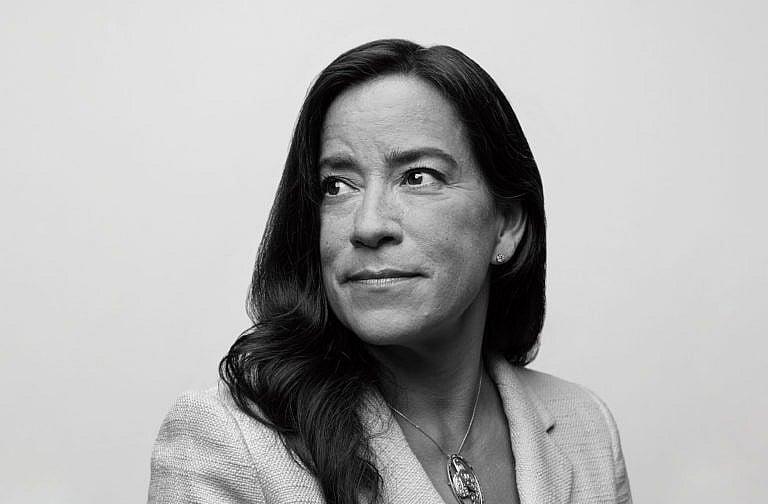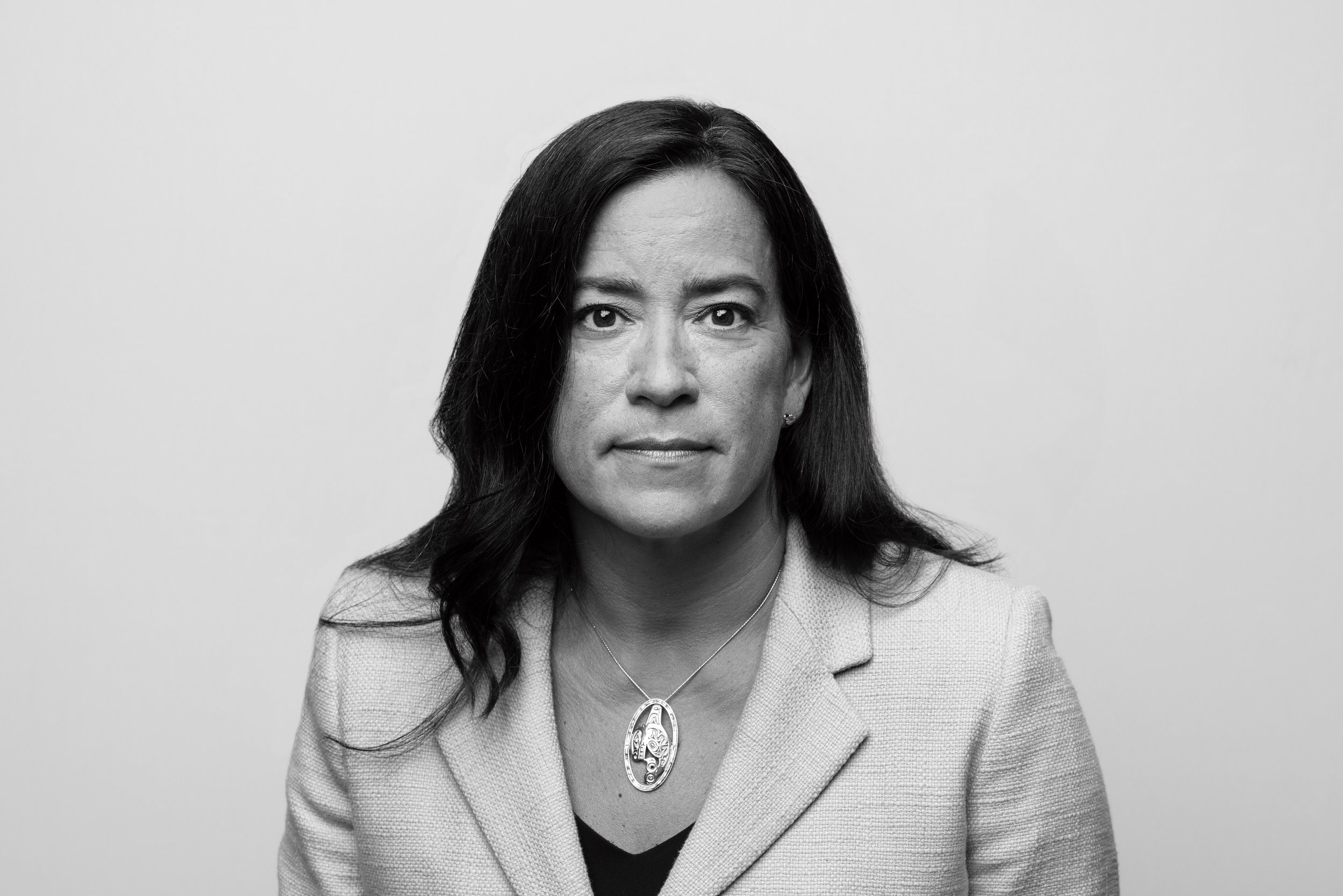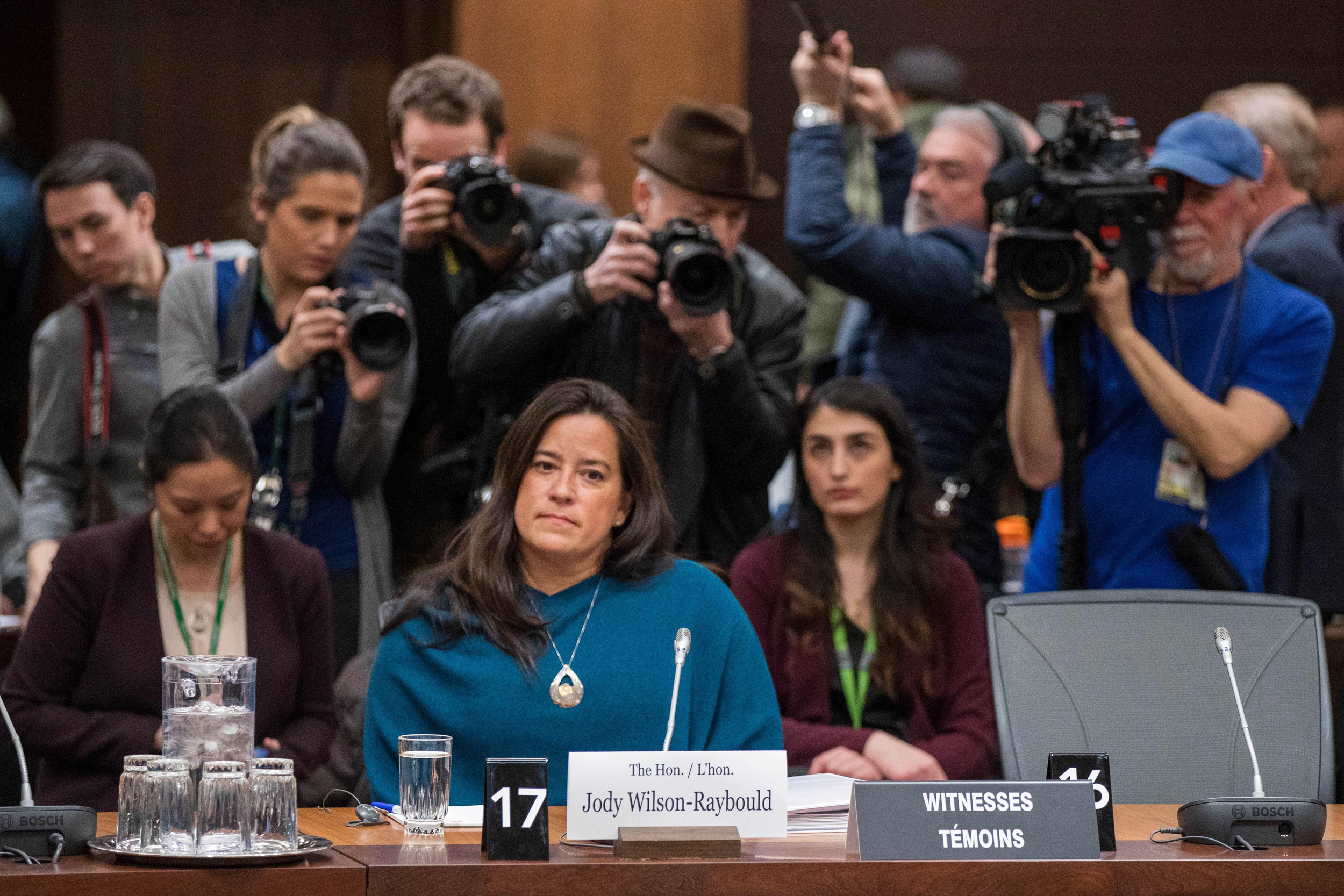Jody Wilson-Raybould on Ottawa’s power problem
The former justice minister talks with Marie-Danielle Smith about her memoir, why she left Parliament—and how more free thinkers can change things

Independent Member of Parliament (and author) Jody Wilson-Raybould in her Confederation Building office in Ottawa on Aug. 4, 2021. (Photograph by Blair Gable; Hair and makeup by Marianne Moore/One Fine Beauty)
Share
I spoke with Jody Wilson-Raybould shortly before the release of her political memoir, “Indian” in the Cabinet. The political memoir, published by Harper Collins, is an account of Wilson-Raybould’s time in federal politics that focuses on her experiences working in Prime Minister Justin Trudeau’s first cabinet. The former minister of justice and attorney general was ousted from the Liberal party in 2019, having resigned from cabinet over Trudeau’s perceived interference in a criminal prosecution of SNC-Lavalin. Our conversation was edited for length and clarity.
Q: How have you been doing during the pandemic?
A: Faring pretty well. God, I remember having questions like this 18 months ago. Having to transition to a hybrid Parliament was a fascinating experience. It’s made everybody very familiar with Zoom. But I’ve missed the hands-on, in-person meetings and doing stuff in the community.
I don’t know about you, but I started baking. Then I realized the only thing I can do is get outside. I started walking. And now I’m a runner.
Q: It’s also been a good time for introspection, right? Can you walk me through your thought process as you decided to leave Parliament?
A: When we went into that hybrid Parliament reality, there were some important initiatives that the government moved on to support Canadians through an unprecedented time. It showed me that we can do big things if we actually co-operate.
But that co-operation was short-lived. I witnessed a return to, even more so, this hyper-partisan jockeying for position in terms of acquiring votes and political expediency over the major issues that needed to be discussed. Climate change, Indigenous reconciliation, social justice: the ones that brought me into politics.
I’ve always been a copious note-taker, and I write in journals. I started to write different vignettes of experiences that I had in elected leadership, as a minister, as an MP. That was how the book was formed. I was thinking about—this is highfalutin, I guess—the nature of democracy.
RELATED: Murray Sinclair on reconciliation, anger, unmarked graves—and a headline for this story
Q: I mean, I’m all about that.
A: I was thinking about all the different elected roles that I had and why I got into them in the first place. Was I able to accomplish what I wanted to accomplish?
So at some point along that path, I decided that I need to leave politics for now. I’m happy with my decision. It was a hard one, and there were a lot of emotions around it. The lost opportunity, particularly. And that it didn’t have to be this way.
Q: Your resignation statement called the House of Commons increasingly “toxic and ineffective,” and warned of a “disgraceful triumph of harmful partisanship over substantive action” under current political leadership. You also spoke to the reckoning that Canada’s having over its colonial legacy and systemic biases. It was reminiscent of some of the things NDP MP Mumilaaq Qaqqaq said in her own resignation speech. Based on your experiences operating within these systems, do you think they’re salvageable?
A: I do think they’re salvageable. I have to believe that. We live in one of the most wonderful countries in the world in spite of our history and what has happened and what’s gone wrong. But we have to work on our democracy. We have to work on our institutions. We have to be constantly vigilant, and I think we need to be honest with ourselves about the nature of the democracy that we live in to ensure that we don’t go down unhealthy paths of polarization that we see to a great degree south of the border.
Q: A lot of other people would say no, you have to burn it to the ground.
A: There’s a certain element of truth to that. I think that having a very close look and deconstructing our realities and understanding the nature of our institutions, looking at our colonial reality right now, requires us to take things down to the studs.
Parliament and the colonial laws that still exist in the books, racist laws, these things all have to be confronted. We need to ensure as Canadians that we tell our so-called leaders, and people that want to run for office and be elected, that the status quo on Indigenous reconciliation, on racial justice and on climate change is not good enough. We have to actually do something and create space for rebuilding those institutions where there is systemic racism and bias.
Q: So what changes do you want to see? What are some concrete ways to reconstruct, as you put it?
A: When I ran in 2019, even before that, I talked about looking at the way Parliament operates: the way the standing orders are written, the power and the privileges ascribed to political parties and the nature of our election system.
Q: You mean our first-past-the-post electoral system?
A: Exactly. Look at what’s happening in New Zealand or other countries that have some model of proportional representation. In my experience, the power that is put in the Prime Minister and the Prime Minister’s Office—and by virtue of that, unelected, unaccountable people—in terms of how we make laws and policies in this country definitely needs to be revisited.
In our system, there can be wrongdoing, and unless there’s a public outcry around wrongdoing, days pass. If there are nefarious actors, it can be hugely problematic. So looking at the nature of government, the power that’s put in the Prime Minister, in the cabinet, the nature of confidences that there are, we need to look at those things.
And I would love to see a leader who truly believes that when you bring together people from diverse backgrounds into a political party, it’s not just to tick off boxes to say that they’re woke in an election. I understand there was a measure of tokenism in my becoming a candidate in 2015. I get that. But if you truly believe “diversity is our strength,” then you embrace the diversity and you create the space for truth to be spoken.

(Photograph by Blair Gable; Hair and makeup by Marianne Moore/One Fine Beauty)
Q: When you first ran in 2015, were you hopeful that the Liberal party’s “real change” narrative was genuine? Or did you already go into it with some cynicism, thinking, “Okay, it’s going to be hard to move past the superficial partisan stuff”?
A: I’d been around politics and politicians. But I have a very different world view, and I come from the Indigenous political world where there are no political parties. So then understanding that idea that, in terms of where good ideas come from, if they’re not from within your party, then it’s bad? I’d never experienced that before. I obviously was aware of parties and partisanship. But the depth of it, the hyper-partisanship and particularly the blind loyalty that I witnessed among so many MPs was very disconcerting, to say the least. And I continue to be surprised, even talking with different media people or politicians who have been around for decades.
Q: Can you imagine wanting to be an elected official for that long?
A: No, I can’t. Like, if I was continuing to do something every year toward my goals and trying to create outcomes, yeah, sure, but . . .
Q: But in that environment, it takes a special kind of person.
A: It really does and, you know, I would never be a career politician. I believe it’s a means to an end.
Q: That blind loyalty you talked about seems to be very much the norm. But how would you get rid of that?
A: It requires leadership from the very top, which is what I saw back in 2015. When I had that initial conversation with the now Prime Minister and so many other people, I truly believed that politics can be done differently. I was hopeful and optimistic.
In my first year or so of being a cabinet minister, there was more freedom and we were able to get a huge amount of things done, which I’m really proud of. But over time, elections start looming and priorities change. We’re constantly having to poll everything and making decisions based on polls. That’s problematic.
But it takes leadership, and I’m still waiting to see this leader. I thought it was the current Prime Minister. Canadians are starved for politicians with integrity, politicians who tell them the truth.
Q: What are the merits of trying to change the political system from within?
A: I think it’s important to have people working within a system, and I think it’s important to have people working outside of the system. I was there at seemingly the highest level of government as an Indigenous person. That was important. And I found it doesn’t matter what table you sit around, with what level of perceived power and influence. Your voice can be marginalized.
I found that the status quo is very strong. So it also gets to a place where people within a system become creatures of that system. So having people on the outside looking in that have experience with how government works, with the nature of how decisions are made, with the toxicity of partisanship, I think is important. In terms of not just being negative and calling things out but to actually pragmatically work hard to address the challenges that we have.

Q: You were bucking up against that status quo while you were in cabinet, and it’s, I think, what ultimately led to your departure. But the status quo seems to have held on. Is that demoralizing?
A: Well, yeah, I absolutely did try. As so many others have tried and continue to try. I consider myself in the latter category, still continuing to try.
I wouldn’t change my experience. As my grandmother taught me, I always make sure I can look myself in the mirror at night knowing that I’ve done everything I can and held true to who I am. I’m gonna continue to do that. I hope that people are not dissuaded from getting involved based on what they saw of my experience.
Q: You wouldn’t discourage a young Indigenous person from running for politics. It sounds like you’d encourage them to go for it.
A: Oh my god yeah, absolutely. I would be cheering them on for sure. No matter what party they run for.
Q: I was speaking with a current cabinet minister who described your departure from the Liberal party as losing a member of their family.
A: [Laughs] I have a family, and I truly value my family, and as much as we don’t want certain family members at certain times we cannot ever get rid of our family members. So what that minister is articulating I don’t understand at all.
I mean, dating back to when I was kicked out, Jane [Philpott] and I were kicked out by the Prime Minister, unlawfully, I might add. That was his choice. I haven’t changed who I am. My values and my beliefs haven’t changed. If anything, they’ve been reinforced.
Q: If the Prime Minister had asked you to stay, would you have considered it?
A: That’s a good question. I’ve thought about it. I do not believe based on everything that happened to me and the actions that the Prime Minister and other people around him took, whether that be through SNC or other issues that happened throughout my time in government, I don’t believe that I could’ve run under this Prime Minister in 2019. I’m not going to say he did me a favour, but I loved running in both federal elections. I loved, so much, 2019 and running as an independent.
Q: Tell me a bit more about being independent. I could imagine that it would be harder to feel like you’re leaving your stamp on things when you’re on your own, but on the other hand you’re free of that partisan structure.
A: I wish there were more independently minded people right across the board and that independent thinking was encouraged again. We need leadership.
Being an independent in Parliament can be lonely. I am in a caucus of one. But what I found with the exception of the governing party is MPs were so open, so helpful, offering me time in debate in the House, offering me questions, offering me places at committee to participate if I wished, so there was that congeniality, which I really appreciated.
Q: What’s next for you?
A: I’m looking forward to the book coming out. Hopefully it creates discussion around what I think have been really important themes in our politics right now and for our country.
Before federal politics, I worked with my husband and many other people on a governance toolkit for Indigenous nations. I want to update that. But I haven’t made any definitive decisions. I’ve been fortunate to have lots of different offers around politics and different political positions, so I’m just gonna think about the opportunities I have and where I can be the most useful and advance the issues I’ve been advocating for for decades now.